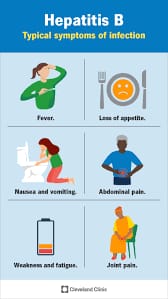Feyisayo Ogunbiyi
The World Health Organization (WHO) has revealed that an estimated 354 million people across the globe are currently living with hepatitis B and C viruses, with treatment coverage still alarmingly low, especially in developing regions.
According to WHO’s latest update, hepatitis B virus (HBV) affects approximately 250 million people, while hepatitis C virus (HCV) impacts 50 million.
The report underscores a dire public health challenge, as hepatitis-related deaths reached 1.3 million globally in 2022—83% linked to HBV and 17% to HCV.
Despite being discovered decades ago—HBV in 1965 by American physician Baruch S. Blumberg, and HCV in 1989 by Michael Houghton, Harvey Alter, and Charles Rice—the viruses continue to spread unchecked, particularly in regions with limited access to testing and treatment.
WHO’s 2024 global data show that only 2.6% of individuals living with hepatitis B have accessed treatment, while 20% of those infected with hepatitis C have received medical care.
In Africa, the figures are even more concerning: just 0.2% of the 4.2% infected with HBV and 3% of the 13% infected with HCV have received treatment.
In other regions, treatment coverage remains inconsistent. The European region has the highest percentage of HBV cases at 45.7%, yet only 1.9% of patients receive treatment. Similarly, 29% of the population is infected with HCV, but just 9% are under care.
Across the Western Pacific, 25.5% are living with HBV, with 5.9% receiving treatment. For HCV, the region reports a 45% infection rate, with 16% accessing care.
Amid this global crisis, Nigeria is taking notable strides to combat hepatitis.
According to WHO’s Country Representative, Dr. Walter Kazadi Mulombo, Nigeria has “established capacity for viral hepatitis response at all levels, including strategies centred on primary health care and universal health coverage.”
“At institutions such as Obafemi Awolowo University Teaching Hospital, all pregnant women are now routinely screened for hepatitis B and C. Nationally, the hepatitis B vaccine is part of the routine immunization schedule for children, and updated guidelines mandate automatic screening for all patients seeking healthcare services.
“Our goal is to have many more people getting tested for hepatitis, knowing their status, and then taking the next step of accessing those services that are already available,” said Dr. Ikpeazu, highlighting the need for increased public awareness and testing.
Do you want to share a story with us? Do you want to advertise with us? Do you need publicity for a product, service, or event? Contact us on WhatsApp +2348183319097 Email: platformtimes@gmail.com
We are committed to impactful investigative journalism for human interest and social justice. Your donation will help us tell more stories. Kindly donate any amount HERE




